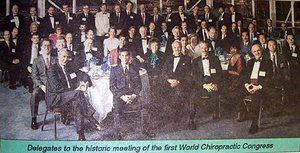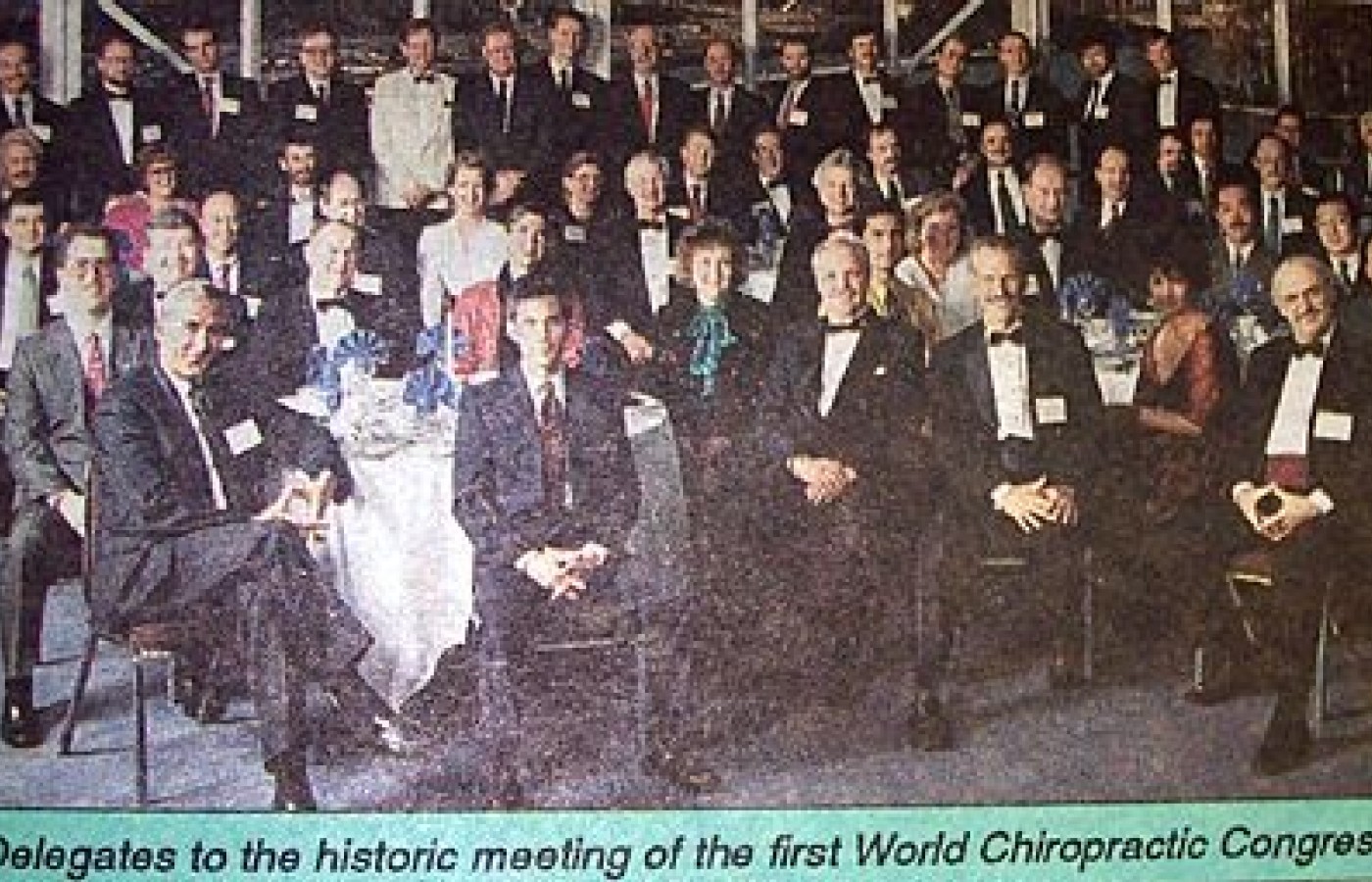It’s a new year and many chiropractors are evaluating what will enhance their respective practices, particularly as it relates to their bottom line. One of the most common questions I get is: “Do I need to be credentialed to bill insurance, and what are the best plans to join?” It’s a loaded question – but one every DC ponders. Whether you're already in-network or pondering whether to join, here's what you need to know.
First World Chiropractic Congress Meets in Toronto

In an event that can only be described as awesome, the World Chiropractic Congress brought the chiropractic "world" together in Toronto, Canada for a week beginning April 29, 1991. Forty-seven countries presented reports on the development of the chiropractic profession in their respective countries. This was truly a time of great elation for chiropractic.
The World Federation of Chiropractic (WFC) is an organization comprised of national associations from countries around the world. With the exception of the United States, each country may only be represented by one national association. The United States was represented by both the American Chiropractic Association (ACA) and the International Chiropractors Association (ICA). Each association, based on membership, will provide delegates to the WFC. (Please see the tables at the end of this article for a breakdown of the countries, national associations, and delegates).
The two-day assembly was attended by 63 delegates and 11 observers representing 32 countries. Reports were received from chiropractic associations from an additional ten countries, making a total of 42 countries reporting the status of chiropractic around the world.
Among the highlights of these reports:
- There is new legislation recognizing chiropractic in Mexico (1989), Iceland (1990), and Cyprus (1991).
- Government funded education programs are now established in Australia and South Africa, and imminent in Canada and Denmark. In the United States, the University of Bridgeport, Connecticut, will open a chiropractic college this September. There are current negotiations for university programs in Mexico and New Zealand.
- Public funding of chiropractic research is growing in Australia, Europe, and North America. In one project, the Ministry of Health in the Netherlands has ordered an investigation of chiropractic in that country by an inter-disciplinary team from the University of Limburg. Meanwhile, the Netherlands Chiropractic Association is embarking upon a major trial of chiropractic treatment for tension headaches. Dr. Jean Robert, chairman of the Professional Council of the European Chiropractors' Union, represents chiropractic in a large multi-disciplinary study of low back pain in Geneva that is funded by the Swiss government.
- Two English MDs have now graduated as chiropractors from Life Chiropractic College and a third will graduate in 1992. These three, in cooperation with Dr. Talaa Ezzeldin, a senior orthopedic surgeon in the Egyptian Ministry of Health, will work in a multi-disciplinary clinic at Enchimes University, Cairo, to establish the chiropractic profession in Egypt. This development arises from a clinical research project in Egypt in 1983 coordinated by the International Chiropractors Association.
- The Venezuelan Chiropractic Association now has 14 members and a strong and secure presence in that country. Sira Borges, M.D., D.C., a 1990 graduate of Palmer College, has now returned to Brazil and is already active with local chiropractors and government in seeking recognition for chiropractic.
- In Asia, South Korea has three new graduates from Palmer in full-time practice, and they will soon be joined by two other Koreans nearing graduation. In the Middle East, successful chiropractic practices have been established during the past few years in countries such as Iran, Qatar, and the United Arab Emirates.
- A two-man chiropractic clinic has now brought chiropractic to Yugoslavia. This follows some years of negotiation between the government and Dr. Ronald Nikolich of Pennsylvania. Dr. Donald Kern, President, Palmer College, has travelled to Yugoslavia to assist in those negotiations and Palmer now has 10 scholarships open for Yugoslavian students.
- Chiropractors form Japan have negotiated and formed the Chiropractic Council of Japan, a new organization unifying and representing all chiropractors in Japan. This was the culmination of years work and another example of how the chiropractic profession is seeking unity.
The assembly also established world chiropractic policy in a number of different areas:
Diagnostic x-rays -- A resolution on use of plain film diagnostic x-rays in chiropractic practice, presented by the Chiropractors' Association of Australia, received unanimous approval. It is now WFC policy that "chiropractic educational standards, practice standards, and regulatory laws should continue to be based on the premise and understanding that plain film diagnostic x-rays services constitute an integral part of the diagnostic services offered within and at the site of a chiropractic office."
Reasons for this policy include the importance of having x-ray diagnosis available without delay for patients where appropriate, and the growing trend in some jurisdictions for most chiropractic patients to be referred to independent facilities. There is also need to support chiropractors in various countries seeking new legislation to regulate the profession -- legislation that should include the right to use diagnostic imaging services, and plain film x-ray within chiropractic offices.
International interference -- WFC member associations, particularly in the regions of Europe and Latin America, have expressed sharp concern at entrepreneurial activities of North American chiropractors and chiropractic organizations that prejudice the development of chiropractic in their countries.
The profession has evolved to the state where it is vital for chiropractors planning activities in a second country to consult the WFC and the representatives of the chiropractic profession in that second country. Resolutions passed by the WFC Council in 1990, requiring proper notification prior to any clinical, educational or governmental contacts in another country, were ratified by the assembly.
Vehicle restraints - On a resolution presented by the Canadian Chiropractic Association, and based on the proven overall effectiveness of body restraint devices in minimizing collision injury and death in motor vehicle accidents, the assembly passed a policy the the WFC "endorses, supports and encourages the use of body restraint devices for all occupants of motor vehicles and appropriate legislation to support this practice."
This establishment of a well developed World Federation of Chiropractic will result in great strides for the profession on a global basis. In addition, each country will be able to assist the chiropractic profession in every other country through the sharing of accomplishments in the legislative, research, and public relations arenas.



